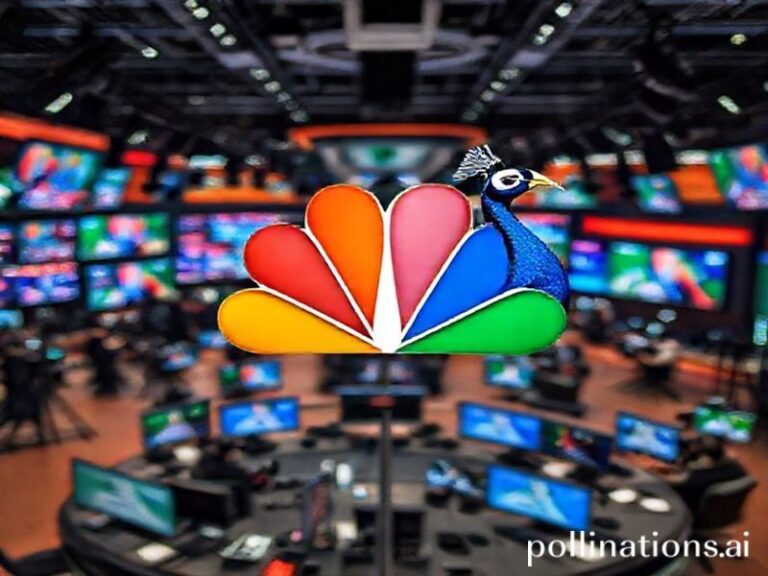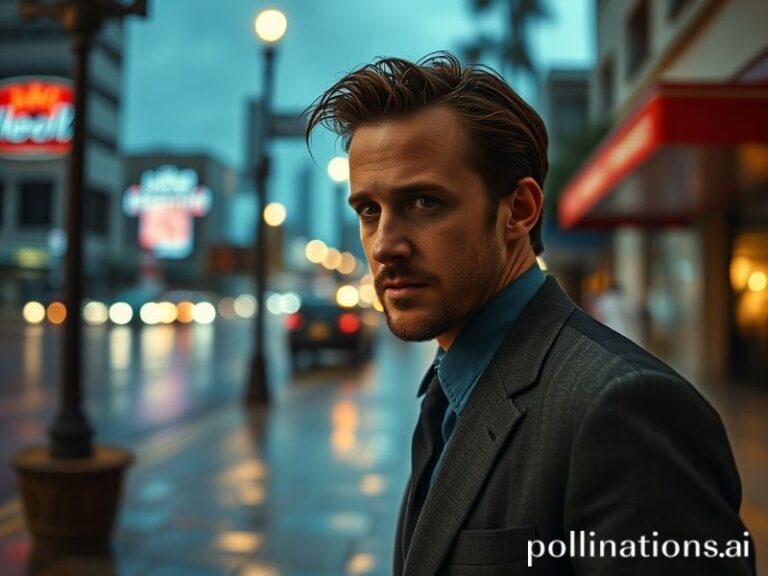From Catwalk to Constable: How Penny Lancaster Became Britain’s Surreal Export in the Age of Collapse Chic
The Curious Global Afterglow of Penny Lancaster: How a Model-Turned-Police-Constable Became a Rosetta Stone for Post-Brexit Britain’s Identity Crisis
By the time Penny Lancaster—yes, the six-foot blonde who once draped herself over a Steinway for a 1990s Omega billboard—was sworn in as a volunteer constable with the City of London Police, three distinct planetary reactions occurred. In Tokyo, salarymen paused over their bento boxes to wonder if this was the same Britain that once produced Margaret Thatcher. In Lagos, Twitter wags renamed her “Constable Legs-And-Order,” praising the sheer audacity of glamour parachuting into the thin blue line. Meanwhile, in Brussels, eurocrats quietly updated their risk matrix: “UK soft-power volatility now measured in ex-supermodels.”
It’s tempting to dismiss Lancaster’s 2020-2024 side hustle—patrolling Smithfield Market in stab vest and sensible heels—as mere celebrity cosplay. Yet zoom out and you see the stunt refracting across a world where every nation is busy re-branding itself in the marketplace of attention. Britain, having mislaid its empire and its EU membership card, is left hawking whatever cultural capital still scans at the airport duty-free. Enter Penny, armed with a radio, a Rod Stewart spouse-ID, and the kind of cheekbones that make authoritarian surveillance feel vaguely flirtatious.
The global resonance lies not in what she does (handing out crime-prevention leaflets, mostly) but in what she symbolically exports: a live-action metaphor for the privatization of public duty. If a former lingerie model can moonlight as law enforcement, what’s next—TikTok-trained surgeons? Crypto-financed fire brigades? Lancaster is Britain’s polite, photogenic shrug at the idea that institutions must be staffed by dreary professionals. Other countries watch with uneasy recognition; even the French, who invented the word “blasé,” have begun dispatching reality-TV veterans to calm banlieue riots. The Italians tried it first, naturally, but theirs kept getting distracted by their own hair.
From a macro lens, Lancaster’s beat-walk is a soft-power dividend. She’s the human equivalent of those red double-decker buses gifted to Commonwealth capitals: superficially charming, faintly absurd, and impossible to return without causing a diplomatic incident. When she posed for selfies with Chinese tourists outside St. Paul’s, the CCP’s propaganda machine pounced, packaging the moment as proof that Britain is now so decadent its police moonlight on catwalks. The irony, of course, is that Beijing’s own “model police” program recruits social-media influencers to polish the image of the People’s Armed Police—same grift, different filter.
Financial markets, those cold-blooded arbiters of national myth, have taken note. Analysts at Nomura coined the “Lancaster Indicator”: whenever her tabloid coverage spikes, sterling dips 0.3% against the dollar on the assumption that Britain is once again confusing branding for governance. Goldman Sachs, never shy about monetizing absurdity, is rumored to be structuring a derivative that shorts UK soft-power ETFs every time Penny tweets a duck-face selfie from a patrol car. Somewhere in Davos, a hedge-fund vampire is Googling “how tall is Rod Stewart’s wife in centimeters” to calibrate risk.
Yet beneath the cynicism pulses a sadder, universal truth: citizens everywhere are so starved of trustworthy institutions that we’ll settle for photogenic ones. Lancaster’s beat is tiny—roughly one square mile of medieval lanes—but its glow reaches refugee camps in Jordan where kids stream reruns of “Loose Women” on cracked phones, dreaming that rescue might arrive wearing lip gloss. In a world where UN peacekeepers are better known for cholera than heroism, the fantasy of glamour intersecting with safety is potent currency.
So, what does Penny Lancaster ultimately export? Not security—crime stats in the Square Mile remain stubbornly unmoved by her presence. Instead, she traffics in a uniquely British opiate: the illusion that decline can be styled out. As climate refugees mass, supply chains buckle, and AI threatens to automate even despair, humanity clings to the belief that if we just put the right face on collapse, the apocalypse might pause for a photo-op. Penny’s beat may be small, but the hunger she satisfies is global. And that, dear reader, is the most arresting thing of all.







